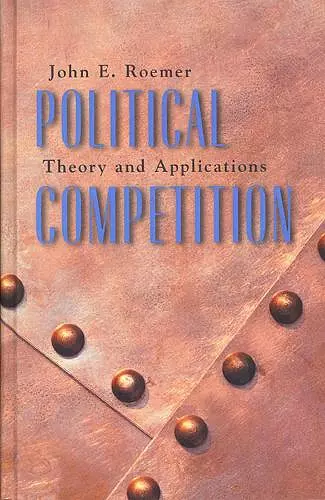Political Competition
Theory and Applications
Format:Paperback
Publisher:Harvard University Press
Published:14th Apr '06
Currently unavailable, and unfortunately no date known when it will be back

In this book, John Roemer presents a unified and rigorous theory of political competition between parties. He models the theory under many specifications, including whether parties are policy oriented or oriented toward winning, whether they are certain or uncertain about voter preferences, and whether the policy space is uni- or multidimensional. He examines all eight possible combinations of these choice assumptions, and characterizes their equilibria.
He fleshes out a model in which each party is composed of three different factions concerned with winning, with policy, and with publicity. Parties compete with one another. When internal bargaining is combined with external competition, a natural equilibrium emerges, which Roemer calls party-unanimity Nash equilibrium.
Assuming only the distribution of voter preferences and the endowments of the population, he deduces the nature of the parties that will form. He then applies the theory to several empirical puzzles, including income distribution, patterns of electoral success, and why there is no labor party in the United States.
Roemer characterizes—correctly—the traditional Downsian model of political competition as one modeling competition between ‘opportunistic politicians’ who themselves have no policy preferences and who choose instead to adopt positions that appeal to the preferences of the optimum number of voters. This, he says, is a misguided model, easy to use but empirically and theoretically inaccurate and producing meaningless results. He offers instead a more complex model…based on ‘parties in conflict,’ which have real policy preferences. Well written… [A] fine contribution to the literature on spatial modeling. -- M. Berheide * Choice *
- Nominated for William H. Riker Book Award 2002
- Nominated for Woodrow Wilson Foundation Award 2002
ISBN: 9780674021051
Dimensions: 227mm x 144mm x 21mm
Weight: unknown
352 pages